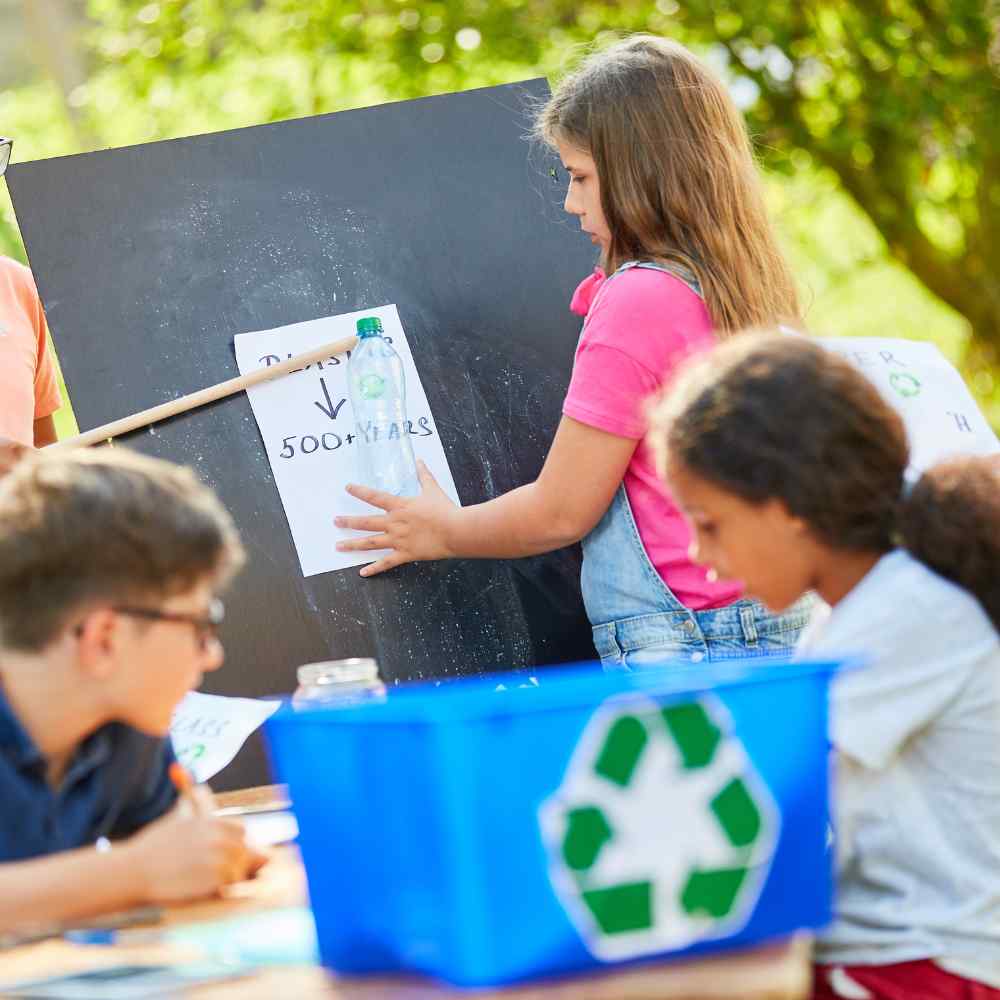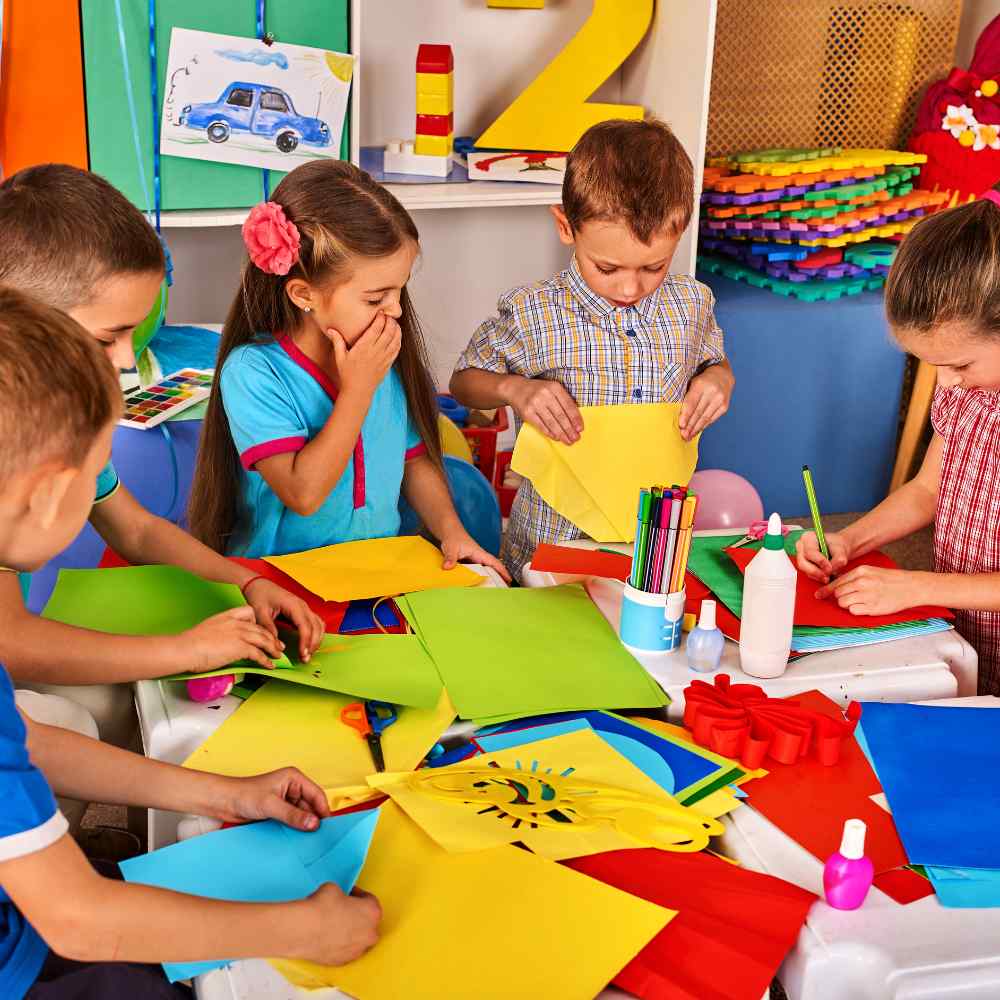Ever wondered what makes a classroom more than just a place to learn? It’s not just the lessons in math or reading—it’s also about helping students connect with their emotions, build strong friendships, and make wise choices. Social Emotional Learning (SEL) helps them manage emotions, build good relationships, and make good decisions. It teaches kindness and better communication, helping students do well in school and life. Let’s explore how Social Emotional Learning is shaping a more caring and connected future for everyone.
What is the Social Emotional Learning (SEL)?
Social Emotional Learning (SEL) is a way of teaching that helps students understand and manage their emotions better, fully experience those feelings, and show empathy towards others. These skills will help the students make good decisions, set and reach their goals, and build strong, positive relationships with the people around them.
Here are the 5 Social Emotional Learning Competencies
- Self-awareness: To understand your emotions and how they affect what you do; knowing what you’re good at and where you can improve to build confidence in yourself.
- Self-management: To take charge of your thoughts, feelings, and actions in different situations and to set and work toward your goals.
- Relationship skills: The ability to create and keep good relationships with people from different backgrounds. This skill is all about listening, communicating well, solving conflicts peacefully, and knowing when to ask for or give help.
- Social Awareness: The ability to understand how someone else feels, especially if they come from a different background or culture than yours. It’s about being kind and doing the right thing at home, school, and in your community.
- Making Responsible Decisions: Deciding how to act or respond to a situation is based on things that we have learned such as ethics, staying safe, and caring for both others and ourselves.

Benefits of Social Emotional Learning (SEL)
SEL has benefits for both children and adults by improving self-awareness and encouraging positive behavior in and outside the classroom. Studies show that students in SEL programs have seen an 11% improvement in their grades and better school attendance. On a personal level, SEL teaches students how to handle emotional stress, solve problems, and fight peer pressure to engage in harmful activities.
It also helps people to manage their emotions, reducing stress and anxiety levels. This helps people to handle tough situations more healthily and improve their mental well-being. SEL encourages better communication, understanding of the other’s feelings, and working well in teams. It also teaches how to build good relationships, solve conflicts, and work together with others.
Why is Social Emotional Learning important?
While many preschools across all 50 states have formal Social Emotional Learning (SEL) programs, only a few states have made the SEL a required part of the school curriculum for elementary, middle, and high schools. Since only a few states have included Social Emotional Learning (SEL) in their curriculum for K-12 students, most of the evidence about its benefits has been based on personal experiences rather than statistics. However, the young children in preschool who took part in an SEL program saw the positive effects early in their education. As more states and schools consider adding SEL to their curriculum, teachers will have better statistical proof of the program’s positive impact.
Impact of Social Emotional Learning?
A lot of research shows how Social Emotional Learning (SEL) positively affects students’ well-being. It helps students build a positive view of themselves, making them more strong, optimistic, and focused. When the students feel good about who they are, they are more likely to take on challenges, stick with tasks even when they are tough, and bounce back from setbacks.
It also encourages a growth mindset, where students learn that they can improve their skills and intelligence through hard work and persistence. This mindset helps them to see their mistakes as part of learning and motivates them to keep improving.
In addition, SEL supports students’ emotional health by teaching them how to handle their feelings and deal with difficult situations in a healthy way. This can help prevent mental health issues like anxiety and depression, which are becoming more common among young people today.

The Future of the Social Emotional Learning?
As more people see how important Social Emotional Learning (SEL) is for students’ well-being and success, more schools are expected to start using SEL programs. The future of SEL focuses on building fair and inclusive learning environments, giving all students the chance to develop the social-emotional skills they need to succeed.
Technology has also become more involved in SEL, with digital tools and apps helping students manage emotions, practice mindfulness, and build relationships. SEL could also grow beyond K-12 education, with colleges and universities adding SEL principles to support students’ mental health and career readiness.
Conclusion:
Social Emotional Learning (SEL) is changing education by teaching students important life skills beyond just their academics. SEL helps students understand their feelings, build strong relationships, and make good decisions, which improves their confidence. This approach not only improves their school performance but also their emotional health. As more schools adopt SEL, it will become a bigger part of the curriculum and also create more supportive and inclusive environments. With the help of new technologies, students will have even better tools to manage their emotions and connect with others. Hence, SEL will help to shape a generation of students who are both smart and emotionally skilled, ready to face the future with confidence.







